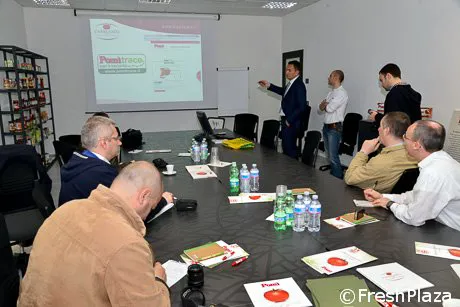
The official presentation to the press.
The project consists of the collection of data from land and tomato crops using drones, i.e. remote-controlled devices that can fly up to 150 metres and are equipped with IR cameras.
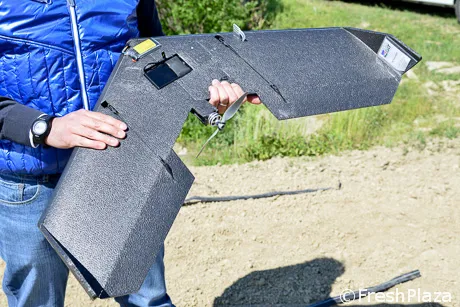
One of the drones.
The cameras collect the various wavelengths reflected by the ground and create a map that shows the state of the plants, thus identifying the areas in need of water. This enables growers to carry out targeted interventions with fertiliser spreaders or irrigation systems equipped with a GPS system and electronic control units.
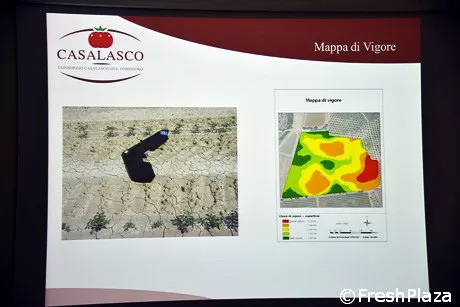
Costantino Vaia, chairman of the Consortium, talked about the main characteristics of the project and how it is part of the wider sustainability plan of the company. "Compatibility with the environment is becoming more and more important for companies and it is a suitable response to the increasing attention of consumers towards sustainable products."
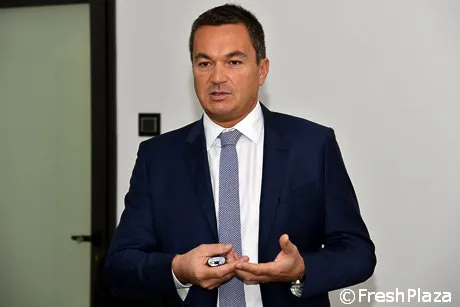
Costantino Vaia.
The Consortium has already placed the standard Carbon Trust logo and the "Pomì Trace" label on the products sold under the Pomì brand.
Paolo Voltini, chairman of the Consortium, stressed how the company follows the short chain and consumer protection principles promoted by Coldiretti. "All our commercial farms are located within 50 km of the processing plant and our raw material is 100% Italian."
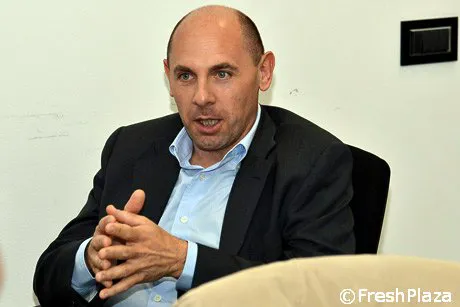
Paolo Voltini.
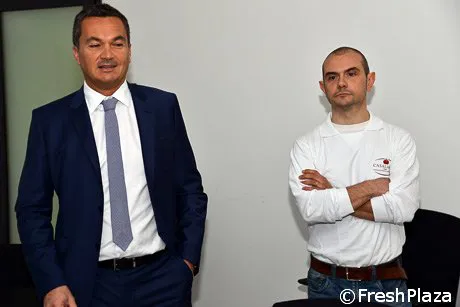
Chairman Costantino Vaia and Dante Rocca, agronomic manager for the company.
The Consortium gathers 12 commercial farms located in the provinces of Piacenza, Parma and Cremona covering a total of 150 hectares (expected to produce 300,000 tons of tomatoes in 2014 for a total turnover of €200 million).
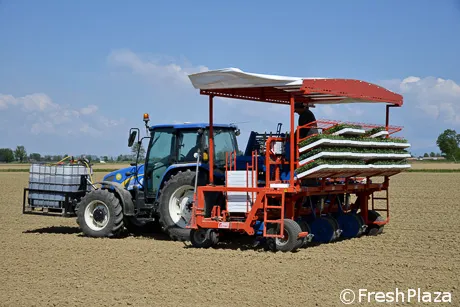
Tomato transplants.
So far, three drones have been used. Each drone can fly for around one hour and to map the whole territory 5 to 6 flights are needed. The technology they employ is Israeli-Japanese and they have already been successfully used in orchards and vineyards.
"If the results meet our expectations, we are planning on using this method on the majority of our partners. We feel innovation is important, especially if it can improve the cost/yield ratio and guarantee higher profitability."
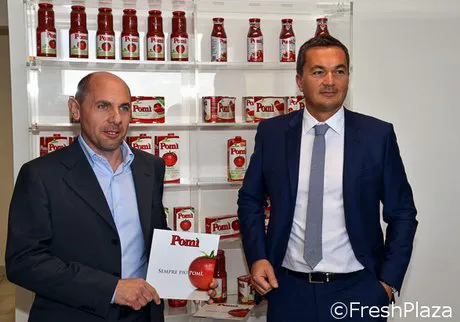
Paolo Voltini and Costantino Vaia.
Once the meeting was over, the group visited a field to see one of the drones at work.
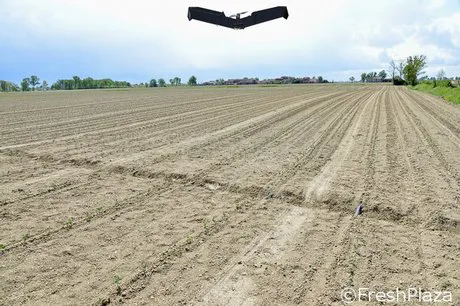
The Consortium will be one of the main sponsors of the next Tomato World Congress, to be held near Lake Garda. Cutting edge technology, precision agriculture and environmental sustainability will be among the main issues discussed.
For further information:
Pomì – Consorzio Casalasco del Pomodoro
Web: www.pomionline.it
Web: www.ccdp.it
